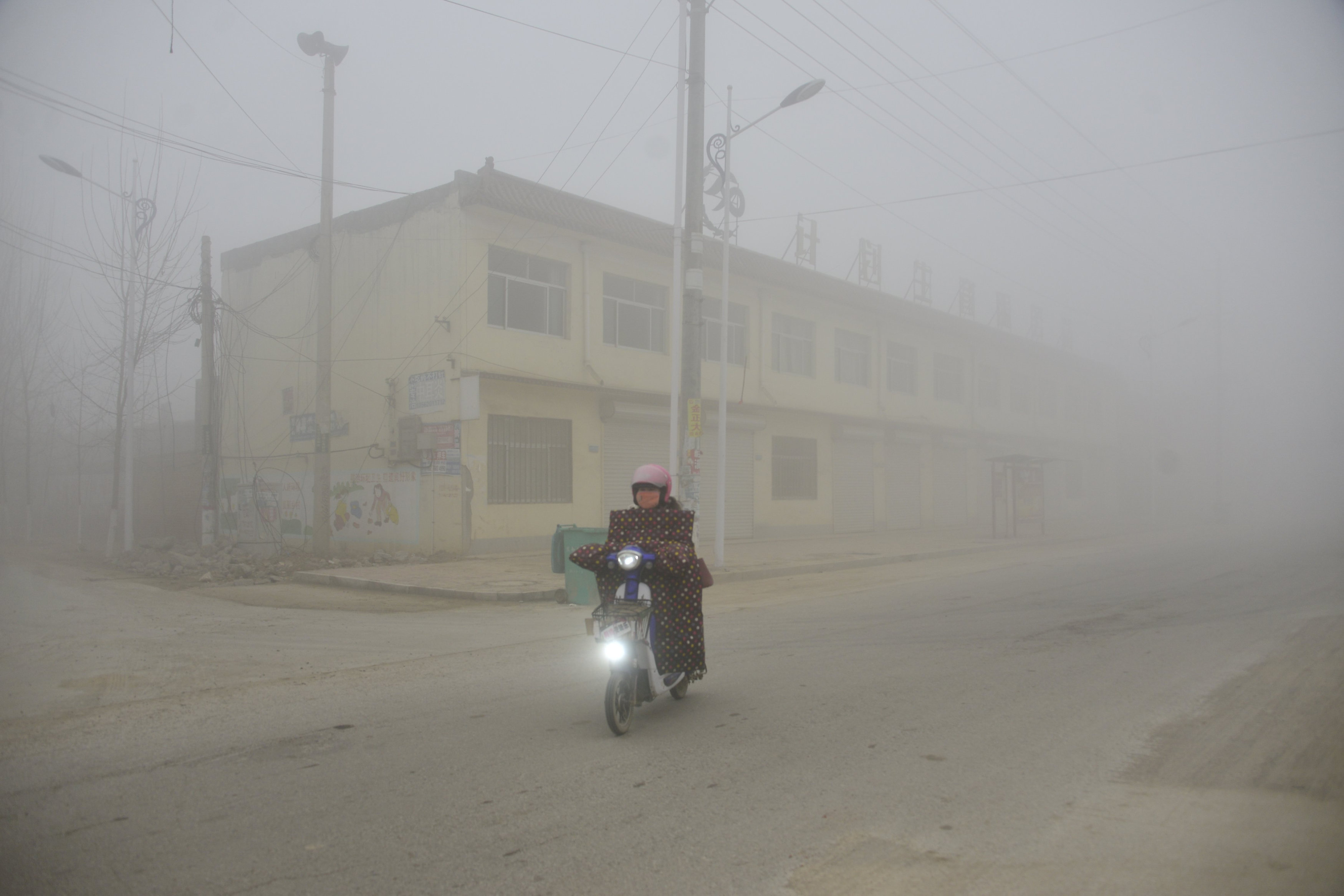Image: A cyclist rides along a street in heavy smog during a polluted day in Liaocheng, Shandong province, December 20, 2016. REUTERS/Stringer
BEIJING (Reuters) – China’s largely rubber-stamp parliament passed a law on Sunday that will levy specific environmental protection taxes on industry for the first time from 2018, as part of a renewed focus on fighting the country’s pollution woes.
Anger has risen in the world’s second-largest economy at the government’s repeated failure to tackle land, water and air pollution, with large parts of northern China enveloped in dangerous smog in recent days.
“Tax revenue is an important economic means to promote environmental protection,” the Finance Ministry said in a statement.
The tax rate will be 1.2 yuan ($0.17) per unit of atmospheric pollution, 1.4 yuan per unit of water pollution, 5 yuan per tonne of coal waste and 1,000 yuan per tonne of “hazardous waste”.
Industrial noise polluters will also be levied 350 yuan per month if they exceed limits by 1-3 decibels, 700 yuan for 4-6 decibels and 11,200 yuan per month for 16 decibels and more.
The law goes into effect on Jan. 1, 2018.
China has not previously imposed any specific environmental taxes, and the new levy will replace an earlier system of miscellaneous charges that are regarded as far too low to deter polluters.
Officials have repeatedly stressed that the new policy is not designed to increase the tax burden on enterprises.
“The core purpose (of the policy) isn’t to increase taxes, but is to improve the system, and encourage enterprises to reduce emissions – the more they emit the more they will pay, and the less they emit the less they will pay,” environment minister Chen Jining said earlier this year.
The details of the new law have been fiercely contested by the Ministry of Environmental Protection, the Ministry of Finance, the State Taxation Administration and local governments, and has been subject to repeated delays.
Conflicts of interest have emerged as other departments worry about lost revenues once the previous system of emission discharge fees is abolished. Some government researchers have also argued that carbon dioxide and other greenhouse gases should be included in the plans.
Jia Kang of the Ministry of Finance’s Institute of Fiscal Science complained this year that the environmental tax proposals were far too conservative, with the tax rate per tonne of sulphur dioxide still much cheaper than paying for the equipment required to stop it entering the atmosphere.
He suggested that, in order to avoid increasing the tax burden on firms, other business taxes should be cut and replaced by the environmental tax, which would give authorities a more powerful tool to force a firm to improve its environmental performance.
($1 = 6.9432 Chinese yuan renminbi)
(Reporting by Ben Blanchard; Additional reporting by David Stanway in Shanghai; Editing by Paul Tait)
Copyright 2016 Thomson Reuters. Click for Restrictions.


